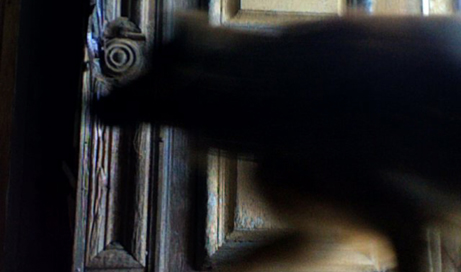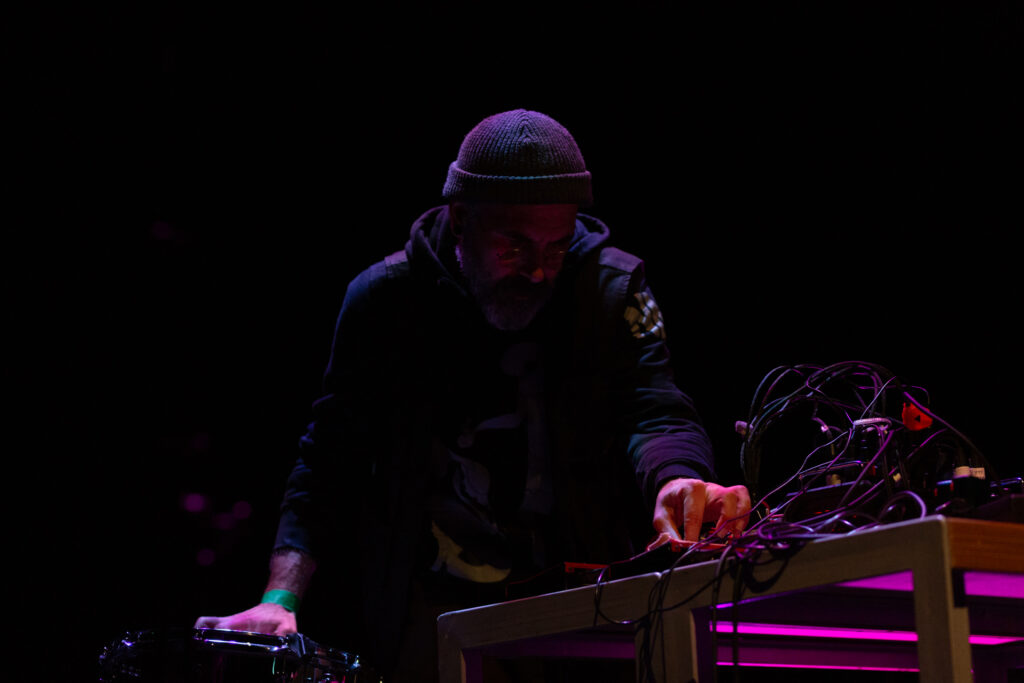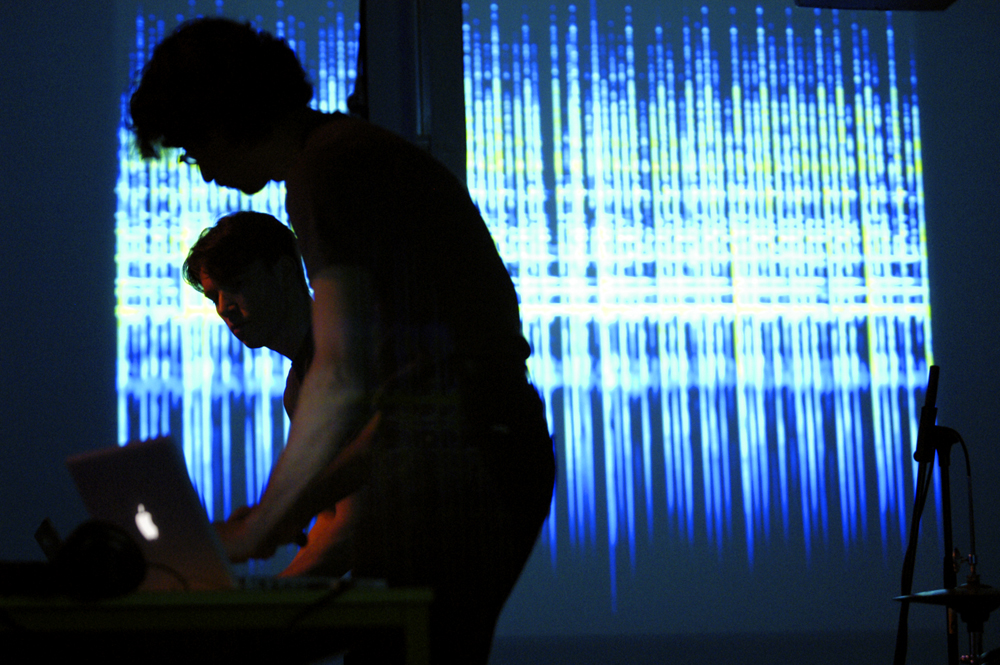
My Dog Is My Piano
Antonia Baehr
An audio/ video, lecture/ performance exploring the queer and companionly inter-activity of human-animal relations.
Arika have been creating events since 2001. The Archive is space to share the documentation of our work, over 600 events from the past 20 years. Browse the archive by event, artists and collections, explore using theme pairs, or use the index for a comprehensive overview.

An audio/ video, lecture/ performance exploring the queer and companionly inter-activity of human-animal relations.

Music is full of refracted brass and wind tones, distorted tape loops, dead silent air and the occasional piercing shard of sound.

Inspired by Delany’s Aye, and Gomorra. A spookily filmic world where asexual bodies live in the contradiction of their unarousable loneliness and desire for intimacy and contact.

ACCESS: SOUND FILE A day-long salon accompanying KYTN focusing on sound art.

Emotional fantasies, towers of cakes, identity troubles, collapsed distance and time and Samuel R. Delany’s rarely seen 1971 film The Orchid.

A discussion about what is at stake in the performance of realness and the practice of passing, and how they are both acts of survival and resistance.

Radu plays a trombone, Klaus creates pure sine waves: they sound on their own, or sometimes together and often with considerable space and silence.

The most sophisticated synthetic music around: timbrally otherwise body music as sonified fictions and auditive sociograms.

Live ISDN drone performance resonating between Dundee and an empty Montreal Grain Silo.

Writing that shows us that, even in struggle, there is light to be let in.

A dense, hard, immersive, chaotic spatial performance in sound: a momentary gap in consciousness, free of order or decision.
Low-end drone guitarage army since 1997: nobody has done more on this occasion by a gaggle of sludge-lovers from the Scottish underground.